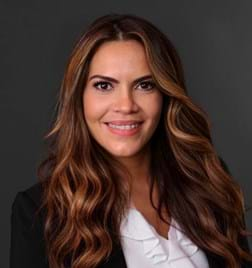Top Appealing Benefits of a Private High School
January 29, 2024
As a parent of a child that attended public school through middle school, I faced the decision of where he would spend his next 4 years of high school. After extensive research, I concluded that sending my son to a private high school was the best choice for us. When faced with this crucial choice, we must commit to achieving what is best for our children’s academic future. We made this decision based on many significant factors that I know parents will find relevant. If you are considering private high schooling for your child here are some appealing aspects to keep in mind.
Specialized Curriculum
What can separate a private high school from your local public school? The first thing that should come to mind is curriculum. Aside from the mandated general education and international language courses offered, the practicality and variety of electives should be taken into consideration. Are the classes offered at your child’s potential school relevant to the real world? The goal is to have options from which to choose various electives that allow exposure to real-life situations occurring after high school. Electives outside the core curriculum are also meant to develop valuable skills such as critical thinking, problem solving, team building or independent learning. Financial literacy is now offered and required for graduation in New Jersey schools, but how does the school you are considering package this subject? An introduction to different industries through other career-based electives should be able to offer general insight to vocational trajectories before selecting college majors.
Magnet high schools are also a great example of providing enrichment experiences into professional journeys as they provide concentrated courses throughout all four years of high school related to a student’s pursuit. By enrolling in biomedical or anatomy and physiology electives at a magnet or private school, for example, a student interested in medicine can gain an advantage over their cohort. Balancing that specialization, will there be enough variety for electives to be offered to explore different passions? Electives should not be limited to just career-based activities but should also enable students to explore hobbies and passions as well. How strongly emphasized are the arts, sports, and STEM? These programs play a fundamental role in developing a well-rounded student during these formative years. Most traits that make a person come from their passions, and through expression in solid and structured elective programs, students can take their growth outside of high school to make a profound impact in society.
Diversity
Private schools can provide a diverse curriculum that public schools may not be able to deliver. Parents and students may be interest in academic pursuits that private and charter schools provide to expedite and prepare students for their long-term goals. These classes may consist of specific courses, training and internships that push the students toward their career objectives. In addition, these schools may potentially offer exposure to a more diverse student body with people from different backgrounds found in the student’s own hometown. These opportunities are attractive to students and parents who want an early start to their post high school education.
Class Size
Smaller class size may build an environment that can lead to greater learning and socialization skills. Students build bonds with teachers, staff and their peers that can lead to a comfort level that fosters greater learning, self-confidence, and ownership of their academic responsibilities.
School Reputation/ Like-minded students
Parents are attracted to schools with a reputation for high academic standards. Their rigorous programs may more thoroughly prepare children for college or university challenges. Also, being surrounded by like-minded students will push their child to excel academically and build necessary study skills.
Affordability
The affordability of private school is a variable that parents must take into consideration when selecting prospective schools. While many private schools may come with an expensive price tag, other alternative options are available such as religious institutions that vary in price. Some private schools also offer scholarships and financial aid for students who qualify and could benefit from the assistance. Charter schools are a free option for parents who are looking for an alternative curriculum for their children.
Cost
The average cost of private school, according to October 2023 article by Melanie Hanson, states that schools operating as a religious organizations tend to cost less than secular independent schools. For example, average annual tuition for private Catholic elementary schools as of 2023 was $4,480, compared to $11,207 for all private elementary schools, according to the Education Data Initiative. Average tuition for secondary Catholic schools was $11,240, while independent private secondary schools charged $16,645.
I have the honor of working with a diverse range of schools in New Jersey and New York and I have gained a thorough understanding of their short and long-term goals. One of the many conversations I’ve had with the schools is how they support giving students access to the best education possible while providing academic advancement through a wide array of programs that will foster their development as leaders. In my personal experience, I had to learn to set aside the financial resources to fund my son’s education. The planning I executed minimized stress and allowed me to enjoy his four years of high school with minimal concern. I hope this information will support you in formulating an action plan that will assist you in making the best possible decision for your child. We at Kearny Bank are well versed in assisting schools and families in providing the necessary resources to achieve these goals.
By Frances Montagnino, VP / Education Relationship Officer
About Frances:

Frances Montagnino is a Vice President, Education Relationship Officer at Kearny Bank. In this role, she’s responsible for establishing and fostering relationships with public and private educational institutions.
Montagnino has spent more than two decades in the financial services sector, beginning her career as a financial broker and then expanded into retail banking. She also has experience in commercial lending. Frances has the background to provide business clients with expert counsel that can lead to enhanced financial success.
A Cum Laude graduate of Kaplan University, with a Bachelor of Science degree in Business Administration, Montagnino has taken a wide range of professional training and leadership courses, including recently completing Harvard Business School “Leading in the Digital Era” Executive Education course.
Along with membership in the Fort Lee Chamber of Commerce and New Jersey’s Statewide Hispanic Chamber of Commerce, she also provides volunteer support to a range of charitable and educational organizations.
Contact Frances today.




